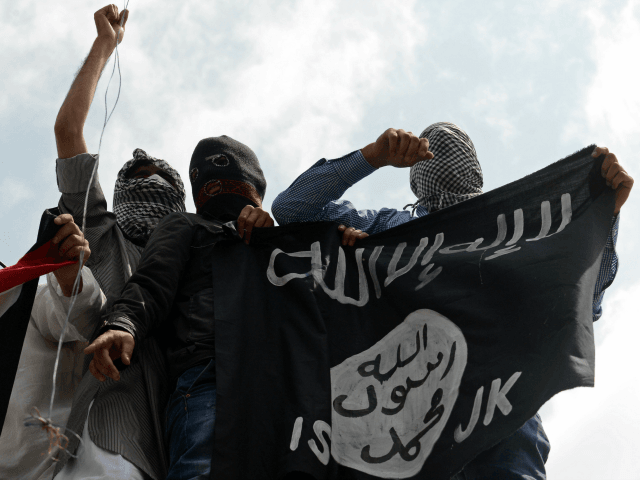Japanese Prime Minister Shinzo Abe confirmed to concerned members of the nation’s parliament that he has no intention of sending the nation’s self-defense forces (SDF) to engage in war with the Islamic State, despite the jihadist group’s attempts to engage Japan by kidnapping its citizens.
Abe added that his engagement with the new American government under President Donald Trump would not change his repeated assertions that Japan would not play a military role in the fight against the Islamic State (ISIS).
Accepting questions in Japan’s national legislature, the Diet, Abe responded to concerns from opposition party members that he may be open to sending Japanese troops to the Middle East to fight the Islamic State. “Our nation is not going to partake in military operations or provide logistic support,” he stated plainly, calling it a “political decision” not to engage ISIS directly. “Under this matter, we as a nation need to make a judgment on our own initiative, and I will thoroughly explain this to the Trump administration.”
Abe, who was the first head of state to meet President Trump personally following his electoral victory in November, reiterated that he trusted the new leader. “I said then that he was a leader that could be trusted, and that the meeting was one in which I could be confident of that. My opinion remains unchanged,” he told opposition party members. At the time, Abe said he was “confident” he could trust President Trump, a remark that agitated Japan’s rivals in Beijing. Abe’s closeness to Trump following the President’s comments during the election that he would be comfortable with Japan depending less on the United States for its defense appears to have triggered concern among Japanese pacifists, as well.
Abe made his remarks – which also included a defense of Trump’s use of the social media platform Twitter and caution regarding Trump’s economic policies – just as the Japanese government announced that it was planning a new meeting between the two leaders. Abe will meet Trump again on February 10 in Washington, according to a “diplomatic source” speaking to Japan’s Kyodo News. The meeting will follow a visit to Japan and South Korea by Trump’s newly-appointed Secretary of Defense James Mattis, his first overseas trip since assuming the office.
Abe has repeatedly denied having any desire to send the Japanese SDF into ISIS-controlled areas. A year ago, Abe declared Tokyo had “absolutely no thoughts of taking part in a military campaign or providing logistical support. And this decision will remain unchanged for the foreseeable future.” Many have questioned his remarks, however, in light of his calls to amend the Japanese constitution to allow the SDF to function more like a conventional military.
The Japanese constitution, written to curb the nation’s aggression in World War II, prevents the nation from maintaining a traditional military, instead only allowing investment into assets that will protect the nation from external attack. Abe has repeatedly called for amending Article 9, which specifies these limits, arguing that the SDF as it currently operates violates the constitution anyway, and Japan should “address the situation in which 70 percent of constitutional scholars suspect the SDF is in violation of the Constitution.”
Abe has also referred to the SDF as a “military,” causing some commotion among pacifists in the country.
Abe has not, however, called for offensive action against the Islamic State, although the group has targeted Japan. In 2015, ISIS jihadists abducted and executed on video two Japanese nationals, Kenji Goto and Haruna Yukawa. Abe issued remarks following the release of those video that he would make ISIS “pay the price” and urged lawmakers to expand SDF powers to include the evacuation of Japanese citizens from war areas. He did not, however, call for any Japanese participation in the eradication of the Islamic State from Syria or Iraq.

COMMENTS
Please let us know if you're having issues with commenting.